Tuesday Feb 17, 2026
Tuesday Feb 17, 2026
Thursday, 20 August 2020 00:55 - - {{hitsCtrl.values.hits}}
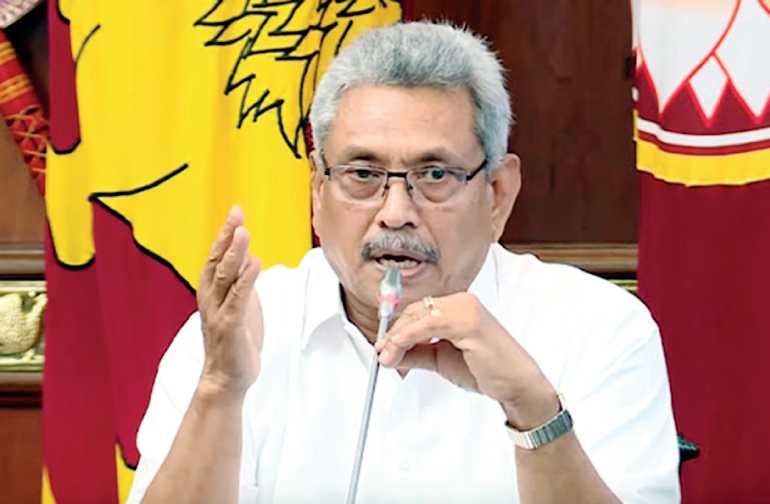
President Gotabaya Rajapaksa
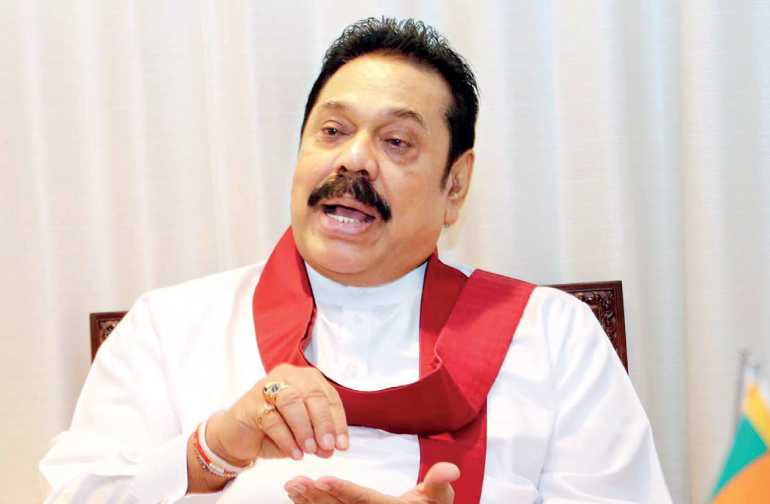
Prime Minister Mahinda Rajapaksa
The Cabinet appointments and those of the State Ministers and Secretaries, ranging in the main from the unexceptionable to the positive, nonetheless leave me analytically pessimistic about the prospects of this regime and the experiment upon which it has embarked. Despite the fact that several of the appointments are good and the rest aren’t too bad—with a few exceptions—the reasons for my pessimism are not those of personality, but of structure and strategic direction.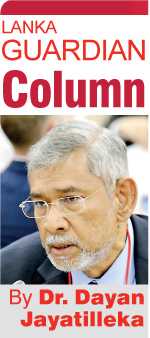
It has been noticed that the strikingly successful election results of 2019-2020 are very close to the twin results of 2010 under the leadership of Mahinda Rajapaksa. Those results were reversed but not due to the reasons that either the Rajapaksas or their opponents think. The Rajapaksas think they left too many loopholes which they are determined to block by means of constitutional amendments followed by a new Constitution. Their opponents think that it was they, together with civil society and some foreign friends, who “flipped” the 2010 victories. Neither perspective is accurate.
I say this because the failure was predicted to me in 2010 itself, by one of the most intelligent people I have had the privilege of a discussion with, Singapore’s Foreign Minister at that time, Dr. George Yeo, a former Brigadier-General and former Chief-of-Staff of the elite Singapore Air Force, and a diamantine intellect. What he said held true then, and holds truer still of the Gotabaya administration.
Top-heavy
Like others mentored by Lee Kuan Yew, for whom Sri Lanka was a reference point and paradigmatic tragedy of which he had a crystal-clear reading, Dr. Yeo had a penetrating take on Sri Lanka which in 2010 was clocking a high postwar growth-rate, the highest in Asia outside of China (by Singaporean estimates).
During an hour-long conversation, we spoke among other things about the post-2010 election Sri Lankan situation under President Rajapaksa and he looked steadily at me and said “you know that it can’t last, don’t you?” I replied that the twin election victories seemed very solid, but admitted that managing the Tamil diaspora-driven international challenge would be daunting now that the government had abandoned our winning platform (with Singapore as an active participant and partner) in Geneva.
Dr. George Yeo replied “the Tamil diaspora isn’t their main problem; that’s secondary. It’s simply that the whole structure is top-heavy; far too top-heavy to last”. “Ah!” I said, “you mean the family?” and he nodded. His underlying point was that top-heaviness is structurally and systemically de-stabilising, however popular and/or authoritarian the regime. He proved correct five years later. It reminded me of my late father Mervyn de Silva’s line in the Lanka Guardian magazine about the Jayewardene-Athulathmudali regime’s “fine art of self-destabilisation”.
In August 2020 the structure is far top-heavier than in 2010. There is an expansion and proliferation of the family factor that Dr. George Yeo critically noted. This is not the Asian phenomenon of familial succession in politics, which is serial and sequential. The contemporary Sri Lankan phenomenon and process is both sequential and simultaneous, vertical and horizontal. The regime has accommodated even more family members in the power structure, both de jure and prominently de facto, than in 2010. This qualifies it to be defined in the Aristotelian sense, and classified in the Latin American sense, as an “oligarchy”.
In today’s Sri Lanka, more political space is occupied and power wielded by a single family than in any other country on the planet, since the end of monarchic rule in history. The slightly absurd fragmentation of topics and subject areas in the recent appointments is the inevitable consequence of crowding out because of the familial power-cartel. The resultant displacement means there’s just not enough space to be shared; hence the subdivision and fragmentation.
D.S. Senanayake, advised by Sir Ivor Jennings, argued in favour of de-colonisation on the basis that Ceylon’s level of political development was more advanced and closer to that of the ‘white’ colonies (Canada, Australia, New Zealand) than the rest of the colonial world. Today, are we transitioning rapidly in the opposite direction? A political scientist, I am struck by the state forms of the Theravada cultures/societies such as Thailand (constitutional monarchy), Myanmar (military+monk-dominated), Cambodia (personalist) etc.
Top-heaviness is enhanced by the invasion and occupation of the state structure by the military/ex-military cluster, displacing the trained, experienced civilian professionals, while simultaneously, crucial subjects such as Home Affairs (once held by Felix Dias Bandaranaike) are annexed by the (mega) Ministry of Defence.
Rear Admiral Sarath Weerasekara (who prefers to call Sri Lanka, “Sinhale”) has been appointed to the post of State Minister in charge of one of the most sensitive subjects in the Lankan policy portfolio: Provincial Councils. The President placed the subject of Provincial Councils, created under joint Indo-Lankan auspices to provide a measure of autonomy and self-rule, thereby addressing and containing the problem of the Tamil striving for self-determination, in the hands of a man who is an Alt-Right uber-hawk on the question of the 13th Amendment and devolution. 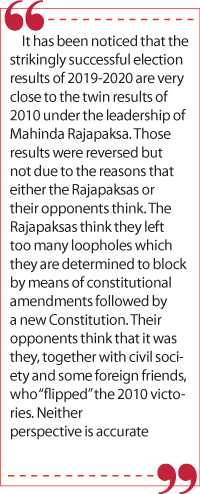
Upon occupying his post, Rear Admiral Weerasekara is reported by the Daily Mirror as saying that “negative clauses… detrimental to the well-being of the nation”, will be removed from the 13th Amendment. He says “we will not devolve Police and land powers to the Provincial Councils”.
Does this mean that the provisions of the 13th Amendment on the devolution of provincial land, painstakingly negotiated/drafted by Gamini Dissanayake and Dr. Sarath Amunugama, will be among those “negative clauses” to be removed, thereby unilaterally altering a bilateral agreement and doing so on the most emotive issue of all, namely land?
An imposition of the ideological blueprint of the brotherhood of senior officers which won the war seems probable, though it means unilaterally re-ordering the 1987 Indo-Sri Lanka Accord concerning the Tamils/Tamil-majority areas and reiterated in wartime pledges to Delhi by the ‘troika’ of which Gotabaya Rajapaksa was a member.
Is it the regime’s view that unilateral measures on the 13th Amendment would have no knock-on effect on the equation with India? Or is the regime’s perception that it has richer, militarily more powerful patrons further East, and therefore any blowback arising from Sinhala unilateralism can be deterred or is affordable?
Truncation of the 13th Amendment means a diminution of power-sharing at the largely Tamil-speaking North-eastern periphery abutting South India. If the majority Sinhalese, comprising two-thirds of the citizenry monopolises a 100% of political power, the system’s top-heaviness would be greater.
Militarisation of the Foreign Ministry
New institutional changes reveal dynamics and direction. For the first time ever, the top administrative spot in the Foreign Ministry is out of the hands of a civilian professional with diplomatic, international affairs/foreign policy experience. I was on a small team, together with General Gerry de Silva (former Army commander and ex-High Commissioner to Pakistan) and veteran ambassador Kalyananda Godage, sent by iconic Foreign Minister Lakshman Kadirgamar in February 2005 to Islamabad to study the Pakistani Foreign Ministry’s superb think-tank network. We were formally hosted to lunch at the Foreign Ministry following discussions with the Deputy Foreign Minister. There were no military or ex-military officers in sight among the top officials. This was during the Presidency of General Musharraf.
The Russian Foreign Ministry, arguably one of the world’s finest, is entirely civilian. Retired Generals serve on teams for arms control in Geneva, or Track-2 diplomacy, think-tanks and academic teaching/research roles. When Stalin anticipated the end of WWII, he founded MGIMO, the Moscow State Institute for International Relations, for top-notch training for Red Army officers in international relations and diplomacy. He didn’t hand over the Foreign Ministry to them. Instead, MGIMO which Dr. Kissinger called “Russia’s Harvard”, is under the Russian Foreign Ministry.
The new Secretary to the Foreign Ministry, a diligent student of security and strategic studies, was reported by the Daily Mirror as saying that he will “re-valuate the foreign policy adopted so far”. He followed it up with some interesting and valid remarks on a foreign policy audit at the formal ceremony at the Ministry. Revaluating foreign policy is however the job of the Foreign Minister, not the Secretary to the Ministry.
The Secretary/MEA is not the “Foreign Secretary” which is the designation of the Foreign Minister of the UK, just as the Secretary/MoD is not the “Defence Secretary” which is the US equivalent of the Defence Minister.
Game of States
The regime has a thin, simplistic understanding of how to manage the India-China contradiction. It seeks to verbally reassure India that it will never let itself be a security threat or allow China to use it to pose a security threat to India. That completely misses how the Game of States goes.
The threat perception of a state, especially a big power, is not assuaged by verbal assurances or even the sincere intentions who give those assurances. Threat perception is based upon capacity, not stated intention, of the perceived adversary or competitor—still less its perceived proxy or client—when viewed in the broadest geopolitical frame of the interstate contest. 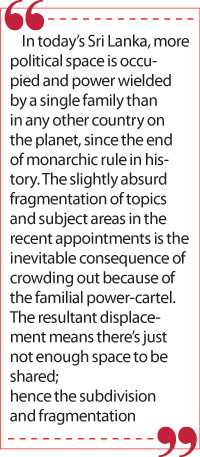
What will matter to India is not what Sri Lanka says but what it does or does not do, given where it is.
The strategic asymmetry which the regime and consequently the country are caught in is this: At a time of heightened Sino-Indian and Sino-American contradictions, China is perceived as having the greatest influence in/on Sri Lanka, which is perceived to be in India’s sphere of influence.
India’s sensitivities concerning the Indian Ocean region, especially on its Southern flank, are as real as China’s regarding the South China Sea and the wider Western Pacific. India will be no less activist in the Indian Ocean region than China is in those oceanic zones. ‘Anti-access/Area denial’ is not only a concept that is embodied in weapons-systems (missiles, in China’s case). It can also be applied by India as a geopolitical concept.
If Delhi perceives Sri Lanka to be unilateralist on issues of Indian concern such as Tamil semi-autonomy and the 13th Amendment because Sri Lanka thinks China has its back; if, through the coming Constitution, Sri Lanka is perceived to move away from the political model and ethos broadly shared with India since Independence, that of democracy, and import into and implant in India’s sphere of influence, a political, ideological and security model inspired, influenced and sustained by China, there will be a strategic schism between this small island and its gargantuan neighbour.
Viewed within an “Indo-Pacific” frame, the profile of an emergent “Beijing-backed garrison state in the Indian Ocean” could catch the eye of Washington.
“We are the world”
Lee Kuan Yew who advised and assisted Deng Xiaoping in the rise of China and welcomed it, also opined in his last interviews that while China’s missiles will eventually be able to push the US out of range in the Western Pacific, it will never be able to supplant the leading role of the US in the world. While noting that the US has the obvious advantages of the near-universal English-language, topmost universities and advanced weapons technology, he said that the flexibility and openness of American society makes it not only a magnet for global talent and brains, but also makes the USA a demographic and cultural mirror of the world as a whole, in a manner that China, with its more insular cultural-civilisational homogeneity and tighter society will never be.
Crippled by Trump’s ultra-nationalism, the USA is no longer playing that role or presenting that image, but if the Biden-Harris ticket wins, it will. Kamala Harris illustrates Lee Kuan Yew’s point and as a South Asian, I am delighted. She is Black and Asian-American or ‘South Asian-American’, with her father from Jamaica and mother from Chennai, Tamil Nadu. As Jenee Osterheldt writes in The Boston Globe “…Calling her Black does not erase her Tamil roots…”
Analysts hold that Biden and Harris will “co-govern”, in a manner more equal than the standard White House equation. Sri Lankans should be proud of Senator Harris’ Chief of Staff and Senior Advisor since 2017, Rohini Kosoglu nee Rohini Ravindran, fellow of the Harvard Institute of Politics and daughter of Sri Lankan Tamil parents who migrated to the USA from Jaffna in the early 1980s. Rohini Kosoglu will be on the White House staff of the Vice-President if Biden wins.
If this Democratic ticket wins, it will impact not only on the international system but also on global society and consciousness, generating synergies between the world’s most powerful and most populous democracies, shifting the needle of world history back in the direction of democratic systems and ideals as universal values.
Global dynamics, Sinhala exceptionalism
Sri Lanka is evolving in the opposite direction and has been doing so for some time. In a presentation at a conference on the theme ‘Challenges of a Society in Transition’ organised by the Faculty of Graduate Studies University of Colombo in December 2004, and carried in two parts in the Daily Mirror beginning Wednesday December 22nd 2004, under the title ‘Sri Lanka’s Nationalities Crisis in the New Global Conjuncture’ I attempted to trace the long-run dynamics, which I later included in my book ‘Long War Cold Peace’.
“As the base, the substructure, of Sinhala-Buddhist rural society irrupts and incrementally influences the Sri Lankan state, seeking to eventually capture it through its organic vanguards…the gap between the world and us tends to widen. There are two ‘geological’, almost tectonic, shifts underway: vertical, from the bottom up as manifested in…the surge, and horizontal, the resultant drift which distances Sri Lanka from the rest of the world. There is less in common between Sri Lanka and the world (in terms of ideology, culture and values) as the country reconfigures to resemble its perceived base or core more than its composite, mosaical totality.” (‘Long War, Cold Peace’, Vijitha Yapa, Colombo, 2014, p380)
“…This [Tamil] Diaspora is compatible and has an interface with two far larger hinterlands or zones of potential support…These links are evident in the social behaviour of expatriate Sri Lankan (Eelam?) Tamils who interact most consistently and overlap readily with Tamilian (South Indian) and Hindu expatriate communities… Tamils, Muslims, Burghers and Christians could have been the bridges and beachheads of Sri Lanka’s interaction with the world. However, it is precisely those cultural connectivities and ‘externalities’ that made the majoritarians regard the minorities as alien.” (Ibid, pp. 377-378)
Resulting from my analysis, I hypothesised that “In the 21st century, it is impossible for the Sinhalese to maintain a centralised, non-secular, unitary state in a conflicted, multi-ethnic and multi-religious society on a small, geo-strategically vulnerable, economically-dependent island.” (Ibid. p 377)
The two-thirds majority will power the Sinhala supremacist-centralist project to its zenith. That very project was our ‘Original Sin’, reversing, retarding and blocking our success, according to Lee Kuan Yew’s consistent, reiterated diagnosis. The ‘Gotabaya period’ will prove whether Lee Kuan Yew and Dr. George Yeo were correct on Sri Lanka yet again—and whether or not my own hypotheses were valid.